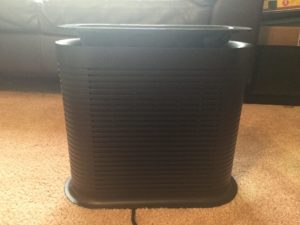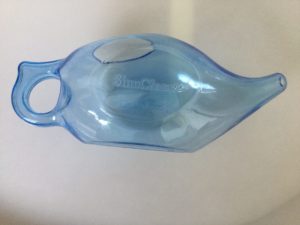When Does Allergy Season Begin?
Welcome to Phun On the Pharm! My name is Dr. Uchenna Kole-James, Pharmacist, and founder of Phun On the Pharm. My fundamental belief is that the best patient is an informed and educated patient, also known as patient empowerment.
Medication Education For You
My mission is to empower you to improve your health through lifestyle changes and medication management.
Have you been waking you with itchy, watery eyes, runny nose, or uncontrollable sneezing? Well I have, allergy season is here! When does allergy season begin, better yet when does it end?
Allergy Season is Here
Seasonal allergies, allergic rhinitis, or hay fever; occurs in response to predictable times of the year, during the plant’s blooming season. Usually April and last throughout summer into the fall. Seasonal allergens include grasses, weeds, and pollen from trees.
According to Dipiro’s Pharmacotherapy, allergic rhinitis is the most common medical disorder found in humans. It affects 20% of adults and 40% of children in the United States. Annual cost of treating allergies is $3.4 billion from medications and office visits and $11 billion from missed work and school days. People can be limited in their normal daily functions, due to fatigue, anxiety, and depressive disorders.
Complications from allergic rhinitis
Complications from allergic rhinitis can be severe and are associated with other serious medical conditions, including sinusitis, migraines, otitis media, and development of asthma. The development of allergic rhinitis is influenced by genetics, and if a parent has allergies, there is a 50% change that the child will have allergies as well.
Symptoms of allergic rhinitis
Patients complain of sneezing, runny nose (rhinorrhea), itchy watery eyes and nose, conjunctivitis, sinus pain, and postnasal drip leading to coughing and hoarseness. Symptoms of untreated rhinitis may lead to fatigue, loss of smell and taste, inability to sleep, chronic malaise, and poor functioning at work and school.
Allergy cascade
The allergy cascade is individualized, and people suffer differently.
Allergy Cascade:
Exposure to allergen→ Stimulates immune response → Histamine (and other mast cell mediators) release → Inflammation (from cellular recruitment – attracted to nasal mucosa) → Mucus hypersecretion, congestion, sneezing, itchy watery eyes, etc.
Prevention or avoidance of the allergen, is usually more important and effective than treatment. Treating symptoms, or suppressing them, doesn’t treat the root cause.
Perennial Allergic Rhinitis
Perennial allergic rhinitis, is a year-round disease caused by non-seasonal allergens. Some indoor allergens include dust mites, pet dander, cigarette smoke, and cockroaches. Outdoor allergens causing allergies year-round include mold spores, pollutants, and diesel.
Treatment of Allergic Rhinitis
The goal for patients with allergic rhinitis is to minimize or prevent symptoms. This goal should be accomplished with none or very few side effects.
Key Takeaways
Allergy Avoidance – Click Here To Watch Video
- Pollen is highest in the morning.
- Removal of carpet, removal of stuffed animals, removal upholstered furniture.
- Encasing mattresses; if can’t encase, wash in hot water; if can’t wash, throw away.

- HEPA filters – remove pollen, mold, cat allergens from air; some vacuums contain HEPA filters.
- Avoid disturbing decaying plants – raking leaves,
- Remove house plants and pets
- Eliminate cockroaches
- Reduce mold growth – maintain house humidity below 50%. Bleach often.
- Closing windows during high allergen months for seasonal allergies and minimizing outdoor time is effective
- Washing clothes and hair often
- Wear filter masks while gardening or mowing the lawn.
Natural Remedies 
- Have you ever tried a NETI-POT? This kettle-like pot is used to rinse away the allergens. You can purchase them from your local CVS or other retail pharmacy in the allergy and cold aisle. It does require some technique to insert into nose for first time users. I have included you Youtube instructional video. Mix the enclosed dry powder, which is basically a 50:50 mixture of sodium bicarbonate and sodium chloride, with water, and rinse. It is most effective when used twice a day, morning and night. However, don’t use within 30 minutes of going to sleep, because of the possible postnasal drainage that could occur.
- EAT BETTER – avoid highly processed foods, pasteurized dairy, consume probiotic (yogurt)
- LOCAL RAW HONEY – helps body build tolerance to the allergen.
Click to Purchase a Neti-Pot Today!
Click to Purchase a Air-Purifier Today!
Click to Purchase a Allergen Blocking Pillow Case (set of 2)
Pharmacotherapy
- Corticosteroids Nasal Sprays – (common: Flonase, Nasacort, Rhinocort, Nasonex) – Reduces inflammation, reduces edema (decreases swollen, puffy look) in the face, decreases immune cell release from immune system
- Minimal side effects most common: stinging, headache, bloody nose
- Can take 2-3 days to work optimally
- Do not blow nose until 10 minutes after using
- Antihistamines (common: Zyrtec, Claritin, Benadryl, Allegra, Xyzal) – Bind to histamine receptor, preventing histamine release. They are available in oral forms, as eye drops, and as nasal sprays. They are most effective in preventing histamine release than reversing it. Take first thing in the morning.
- Side effects: drowsiness, dry mouth, difficulty urination. These effects most pronounced with diphenhydramine (Benadryl)
- Use with caution in these groups: elderly men, patients with increased intraocular pressure, and hyperthyroidism
- Combination Antihistamines and Decongestants (common: Zyrtec-D, Allegra-D, Claritin-D) – Decongestants constrict or shrink swollen mucosa, and improve ventilation and breathing.
- Side effects: Increased blood pressure and heart rate
- Click Here To Watch Video About Pseudoephedrine
- Topical Decongestants -(common: Afrin) – Applied directly to swollen nasal cavity using drops or sprays.
-
-
- Do not used for more than 3-5 days or can worsen congestion
- Side effects: burning, stinging, dryness
-
-
Thank you for reading my blog, Phocus On the Pharm! As always, self-love yourself, what is more important than you!



Leave A Comment